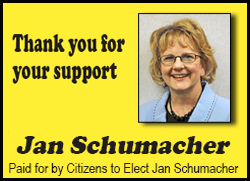| ||||||||||
| ||||||||||
In an interview last year, NYPD spokesman Paul Browne made a distinction between the NYPD "making contact" with Mehanna and "having contact" with him. "We did not initiate any contact," Browne said. He would not elaborate. At trial, Mehanna's lawyers asked what the Justice Department knew about the NYPD's contact with Mehanna. "We are not aware of any such contact," Assistant U.S. Attorney Aloke Chakravarty said. Mehanna was convicted of terrorism charges in December and awaits sentencing. His lawyers said they still don't know how the NYPD was involved with their client. ___ As Cohen was expanding his department's counterterrorism mission, documents show that he also steered the NYPD into the murky world of counterintelligence. Counterintelligence includes spying on other nation's spies inside the United States. Under a 1981 presidential order, that's supposed to be coordinated by the FBI. But as home to the United Nations, New York is a major arena for U.S. spy games. In 2006, documents show, the NYPD focused on the Iranian threat, believing that Iran's government or its proxies, including the Hezbollah terrorist organization, might strike at New York City. It fanned out across the Northeast, looking for Shiite mosques and other places where Iranians might gather. The goals were to spot potential problems and develop informants with ties to Iran and Hezbollah.
In one highly unusual operation, the NYPD recruited a source close to the Iranian Mission at the United Nations, former senior NYPD officials said. Police had tried something similar before, former federal officials said, and crossed paths with the FBI. But this time, the FBI didn't know about it. The Associated Press is withholding details of the operation for national security reasons. Normally, agencies coordinate their efforts, a process known as deconfliction. Without it, two investigators might work the same source. One agency's informant might be the target of another agency's investigation. That can undermine cases and hurt both efforts. Cohen's team recruited the source on its own, the former NYPD officials said. The source gave the NYPD unique insight into the Iranian mission, a connection that the NYPD hoped would provide them early warning of Iranian collaborators in the city. But it also infringed on the turf of the FBI and the CIA, which have longstanding counterintelligence sources across the diplomatic terrain of New York City. Cohen and Browne did not return several messages asking whether they had any comment or concerns about the AP reporting on this incident. NYPD documents also show that police used one of its telephone pole-mounted video cameras to monitor the Saudi Mission, another sensitive diplomatic and counterintelligence location. Documents also show that the NYPD began surveillance of Gholamzadeh Mahabadi Hossein, an Iranian man working closely with his country's U.N. Mission. Police believed he had technology expertise and ties to the Iranian Revolutionary Guard. Hossein was dubbed "Dasher." Police put him under surveillance and trained a camera on his home in Queens, according to documents, as part of a secret police action dubbed "Operation Tailgate." A former NYPD official familiar with Dasher said the NYPD was worried that people like him might be used as an Iranian proxy to launch an attack against New York. The FBI, too, was well aware of Dasher, according to one former FBI official who worked the Iranian target at the time. To the FBI, Dasher was viewed as a potential spy, never a potential terrorist. Had the NYPD raised Dasher's name with the Joint Terrorism Task Force, it would have flagged his ties to counterintelligence operations. That never happened. Dasher has since left the country, officials said. There's no indication that he knew he was being watched. But officials said the incident is an example of how the broader mission the NYPD has taken for itself sometimes puts the department in lanes traditionally occupied by the FBI. In Dasher's case, the FBI and NYPD were watching the same man. Neither knew what the other was up to. FBI Director Robert Mueller said conflicts often arise between the bureau and local law enforcement. "It is not unusual to have that," he recently told a Senate subcommittee. "And my belief is you sit down, you talk about it in private, you get it resolved and you move on." ___ In August, John Giacalone, a veteran FBI counterterrorism official with Long Island roots, arrived in New York to replace Fowler, who was promoted to run the FBI office in Portland, Ore. Giacalone knew about the FBI's problems with the intelligence division but said the relationship was a clean slate. One of the first things the FBI did under Giacalone was to examine a terrorism case of the NYPD. It would become one of the most public spats between the FBI and NYPD. And it shows how, even when the two agencies collaborate, their efforts can be undermined by mutual distrust. The NYPD had been using an informant to keep tabs on Jose Pimentel, a troubled young man whom authorities believed was being inspired to commit violence. But Pimentel had a drug problem and the informant used drugs with Pimentel, who had no known links to al-Qaida or other terrorism groups. Under Fowler, the FBI said it was not interested in pursuing the case. But as new facts came to light, the FBI spent six weeks reviewing the case alongside the NYPD and city and federal prosecutors, federal officials said. The agencies agreed that Pimental was potentially dangerous and could not be ignored. They decided to move forward in state court, federal officials said. The NYPD arrested Pimentel on Nov. 20. Authorities said he wanted to attack police and post offices using pipe bombs. Pimentel has since pleaded not guilty to rarely used state-level terrorism charges. At a news conference, Bloomberg and New York Police Commissioner Raymond Kelly spoke to reporters. "We had to act quickly yesterday because he was, in fact, putting this bomb together," Kelly said. "He was drilling holes and it would have been not appropriate for us to let him walk out the door with that bomb." Asked why the FBI wasn't involved, Kelly suggested the federal government moved too slowly for the NYPD. "There is an assessment process that is engaged in by the federal authorities, the U.S. attorney," Kelly replied. "We just believed we couldn't let it go any further. We had to act."
In an interview with the AP in late January, Giacalone said he had met with all the NYPD's senior leaders when he arrived in New York and found them to be "honest partners." Nothing has changed that view, he said. Giacalone said the infighting has to end. Al-Qaida and its franchises might be crippled but they're still a threat. New York is still a target. To protect the city, the NYPD and FBI need each other. "We are better working together than working apart," Giacalone said. "I am focusing on moving forward. We both recognize the way forward is to work together and to be good partners. The American people would never forgive us if our refusal to share intelligence resulted in a terrorist attack."


[Associated
Press;
Associated Press writer Eileen Sullivan contributed to this report.
Contact the Washington investigative team at DCinvestigations (at) ap.org
Follow Apuzzo, Goldman and Sullivan at http://twitter.com/mattapuzzo, http://twitter.com/goldmandc and http://twitter.com/esullivanap.
Copyright 2012 The Associated Press. All rights reserved. This material may not be published, broadcast, rewritten or redistributed.
News | Sports | Business | Rural Review | Teaching & Learning | Home and Family | Tourism | Obituaries
Community |
Perspectives
|
Law & Courts |
Leisure Time
|
Spiritual Life |
Health & Fitness |
Teen Scene
Calendar
|
Letters to the Editor